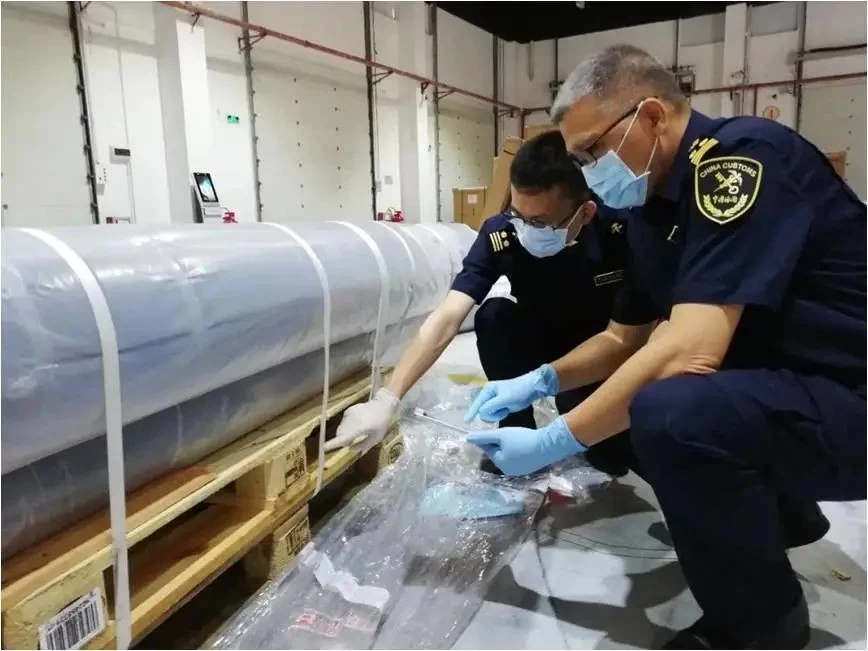Why do wood products need to be fumigated for export? Does solid wood furniture need to be fumigated for export?

In international trade, the export of wood products, especially wood packaging materials, often requires a treatment process called "fumigation".
What is fumigation?
Fumigation is a method of treating items with chemicals or hot gas in order to destroy or control pests, pathogens, weed seeds, etc. In international trade, fumigation is usually used for wood and wood products to prevent the cross-border spread of pests and protect the forest resources and ecological environment of various countries.
Fumigation is usually carried out in a closed container to ensure that the chemical or hot gas can penetrate evenly into every corner of the item. After handling, items need to meet certain safety standards to ensure that they do not pose a hazard to the environment or human health during transportation.
Why do wood products export fumigation?
The main reason why wood products need to be fumigated for export is to meet the provisions of the International Plant Protection Convention (IPPC) and the phytosanitary requirements of the importing country. These regulations and requirements aim to prevent the spread of pests and pathogens through international trade, thereby protecting the forest resources and ecological balance of countries. The main reasons include:
Prevent the spread of pests: Untreated wood products may carry pests, such as beetles, termites, etc., which may survive and reproduce in the new environment, posing a threat to the local forest resources.
Compliance with international regulations: IPPC has developed international Standard ISPM 15 (International Plant Protection Convention Standard 15), which specifies international handling and labeling requirements for wood packaging materials. Most countries require imported wood products to comply with ISPM 15 standards.
Protect national ecology: In order to protect national forest resources and ecological security, governments usually require imported wood products to be fumigated and accompanied by corresponding supporting documents.
Do you want to fumigate solid wood furniture export?
Solid wood furniture, as a kind of wood products, also needs to comply with the phytosanitary requirements of the exporting country and the importing country. If the exported solid wood furniture contains untreated wood, or the source of the wood is identified by the importing country as a pest epidemic area, then the solid wood furniture usually needs to be fumigated before export.
Fumigation treatment can ensure that pests in solid wood furniture are completely eliminated, reducing the risk of transmission. In addition, after completing the fumigation treatment, the exporter of solid wood furniture usually needs to obtain an official fumigation certificate to prove that the shipment has been processed in accordance with the prescribed procedures and meets the quarantine requirements of the importing country.
Specific operation of fumigation treatment
Fumigation is a technical measure to disinfect goods and their packaging, usually using compounds such as fumigants to kill pests, germs or other harmful organisms in a confined area. The fumigation process needs to be carried out at least two days in advance to ensure a 24-hour fumigation cycle and a 4-hour decontamination process to avoid damage to the cargo. Fumigated wood packaging should be shipped as soon as possible, and should be stored separately, away from untreated wood products.
After fumigation is completed, the wood packaging is usually stamped with the IPPC (International Plant Protection Convention) logo, which is an international common label for export wood packaging, proving that the packaging has been fumigated or heat treated, effectively blocking the transnational transmission chain of pests. The logo usually includes IPPC symbol, country code (such as CN for China), treatment method code (such as MB for bromomethane fumigation treatment, HT for heat treatment) and other information.
Wood products that do not require fumigation
It is worth noting that not all wood products need to be fumigated. For example, wooden boxes, wooden trays, etc. made of plywood, particle board, fiberboard and other wood-based boards, or thin wood products with a thickness of less than 6 mm, or wood packaging with special treatment (such as wine barrels, wooden gift boxes, etc.), usually do not need to be fumigated. However, these regulations may vary according to the specific requirements of the importing country, so export enterprises should understand the quarantine norms of import and export countries for wood packaging through multiple channels.
Fumigation is an indispensable part of the export process of wood products, which ensures the safe circulation of wood products in international trade. At the same time, this is also an important measure to meet the import quarantine requirements of countries and ensure the smooth progress of trade. Therefore, export enterprises should strictly abide by international quarantine standards, carefully select reputable freight forwarders to export goods, and avoid losses due to improper operation of agents.

Sunny Worldwide Logistics has more than 20 years of freight forwarding history,and over half of staffs working in Sunny about 5-13years.Emergency solutions must be offered with 30 minutes if any. You may not find other companies like us in Shenzhen.